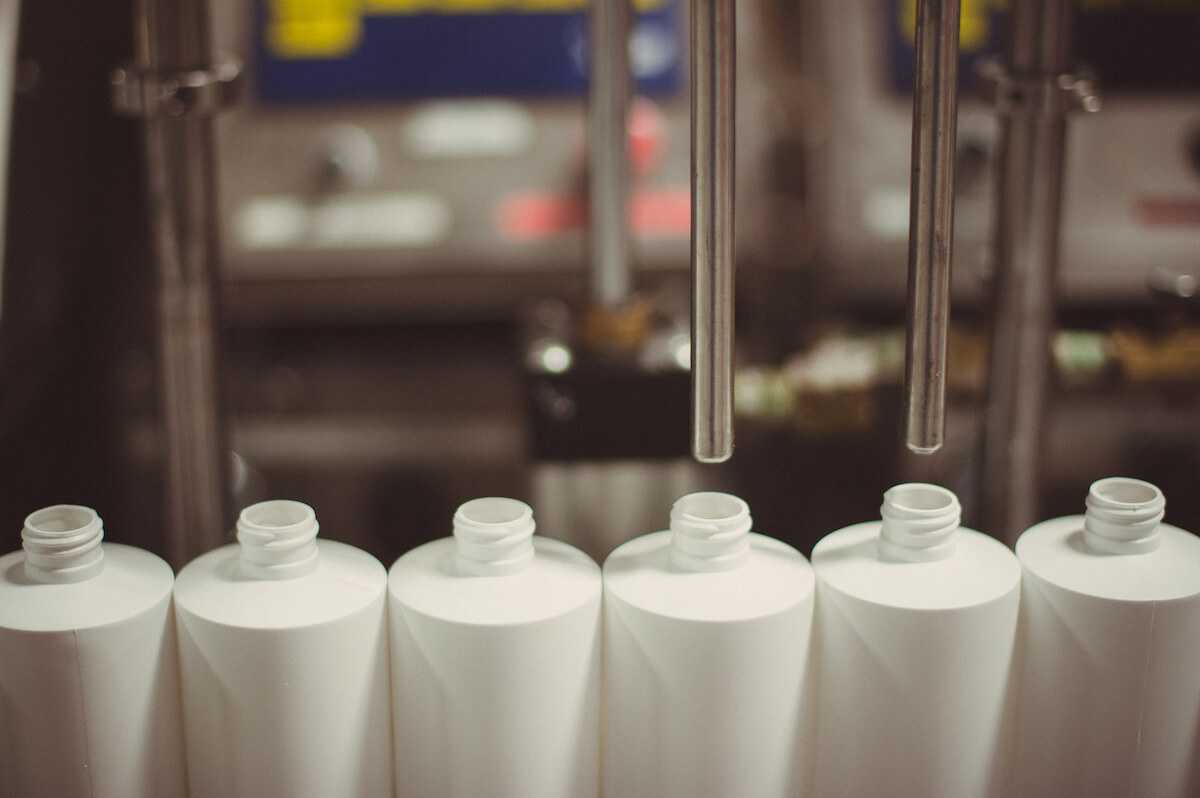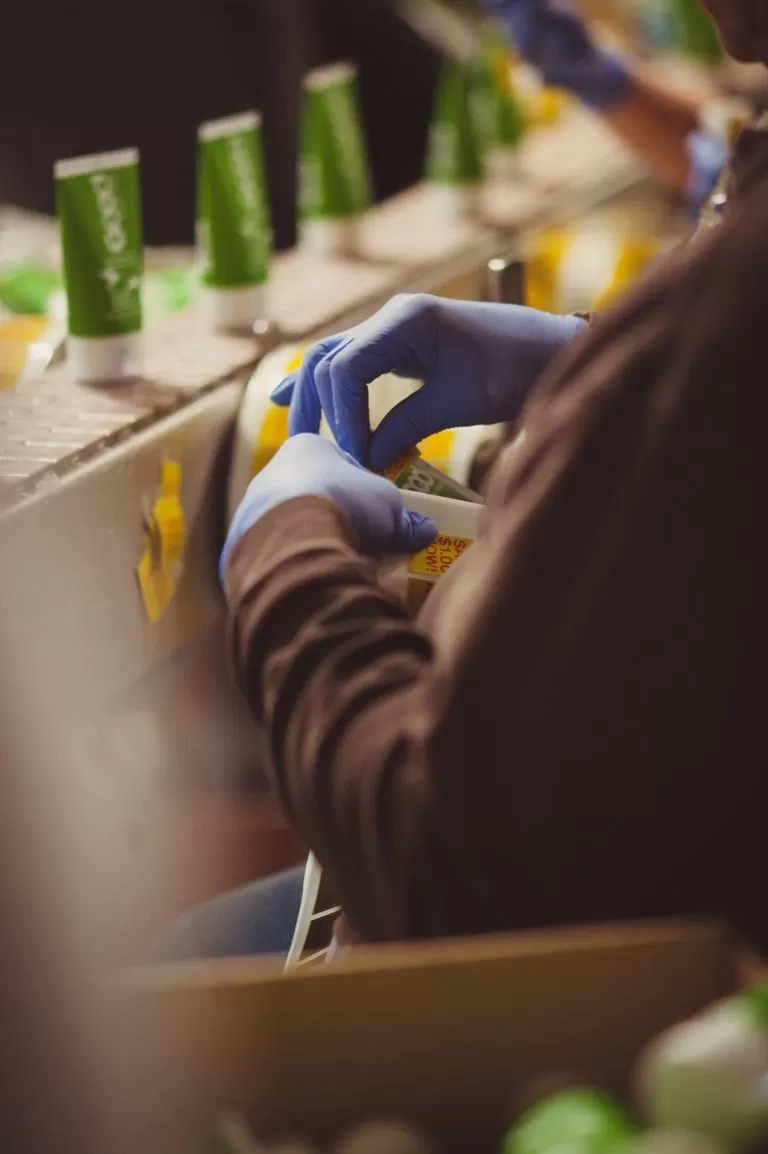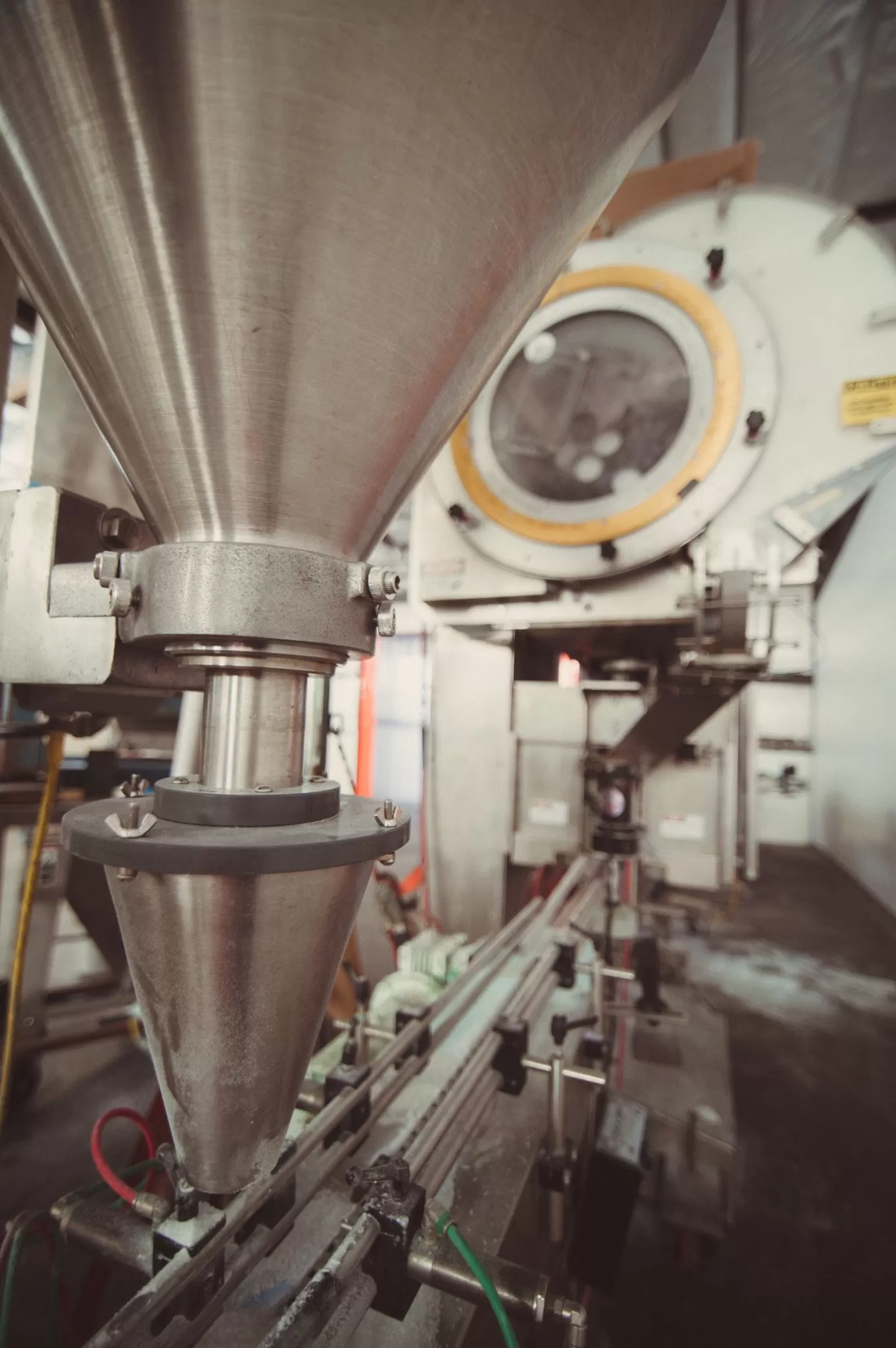Switching
Manufacturers to BPI Labs
Personal Care Manufacturer
Questions to Ask When Considering Technology Transfer
In the spirit of continual optimization, there may come a time when you need to consider transferring your personal
care manufacturing. This could be for several reasons, and the potential business move applies to organizations of all
sizes.

Over the last several years, a number of mergers and acquisitions within the personal care manufacturing space have occurred. This has made it so that some specializations that were formerly offered by the smaller manufacturers (the ones that have been acquired) no longer align with the business plans of large manufacturers (the ones that did the acquiring)—creating a hole in the market for companies that need orders of a certain size. Often they’re too big for the small manufacturers that are left, but too small for the large companies that are eating up the smaller manufacturers in their M&A efforts.
Regardless of whether you’re a small startup or a company in a growth phase that has to hit high production
volumes due to growing demand, it is important to ask the right questions to reduce the risk inherent in a transfer
of any kind. As a personal care manufacturer, we’ve seen time and again that reducing this risk boils down to 3 key
areas:
- Delivery
- Quality
- Cost
On this page, we’ll want to walk through each of these areas and discuss the questions you should be asking as you evaluate technology transfer options and look for the best solution for your personal care manufacturing needs.
1. Delivery
If the pandemic has taught us anything so far, it is that supply chains are precious and can often be fragile if the wrong
dominos fall at the wrong time. One of the biggest concerns we’ve seen from clients is whether or not they’ll get their
products on time.
To start, let’s talk about some of the questions you should be asking as you’re evaluating personal care manufacturers
to transfer your operations to:
- What is your capability and capacity in the factory?
- What is your factory utilization?
- What are your formulation capabilities?
- What is your capacity to run products?
- What processing and packaging equipment do you have?
These answers establish what the manufacturer is capable of from the beginning. By getting the answers to these
questions, you frame your needs in a way that lets you be specific when seeking out a personal care manufacturing
partner. Having those data points can be vital in determining whether or not they can hit your delivery timelines.
Another important aspect in all of this is the specificity of what you’re looking
for. As you look into manufacturers, you’ll want to investigate whether they
can source the correct materials—and, even more importantly, whether they
can source those materials in a timely manner.
You should also ask them if they have the capacity to produce your products
at the correct rate. With the chance of supply chain failures in mind, see how
broad their supply chain is. Will they be able to source things as efficiently if
there are issues? Do they have the lab personnel and capability to formulate
substitutes on-site if they’re unable to source those ingredients?
The next big question is determining how they plan on getting your products
into your packaging. Inquire about their packaging equipment as well as their
run rates for filling, which influences time from filling/packaging to shipping.
You can even get really specific about available options for packaging your
product. What are the costs associated with packaging everything in bottles?
Are there added costs associated with adding a pump to the bottle versus
adding the pump to the carton? Are there cost savings from using screen-
printed bottles versus using a label? Some of these decisions may influence
lead time if supply chain issues crop up. Finally, if it’s possible for your brand
to use tubes instead of bottles, consider asking if the contractor has tube
filling capability and what potential cost savings could be.

Note: BPI Labs tackles this exact topic where we find out that tube packaging wins over bottles.
Finally, another way to measure a company’s flexibility is to ask whether they offer turnkey contracts. Turn key is that the contractor manages sourcing all the packaging based on your specifications. These sorts of contracts indicate they have a good sourcing team and supply chain in place.
Once you establish that a personal care manufacturer can help you with sourcing and delivering your products, you’ll want to vet their quality.
2. Quality
Second to delivery concerns, we’ve seen many clients frustrated with past disappointments regarding the quality of their products with a poor personal care manufacturer.
There are 3 broad classifications that can help narrow down your quality questions when talking with a prospective factory:
- Is this factory registered with the FDA?
- Are they a certified organic business
- Are they capable of producing over-the-counter (OTC) personal care products?
Any “Yes” answers to these questions indicates a higher level of overall quality management, as their equipment
and formulations have to adequately and consistently meet higher standards.
Not only do you want to ask about their equipment and certifications, but you’ll also want to inquire about their lab management. Do they have a skilled formulator staff in their lab? Is there a quality plan or a specific way of
managing their quality team? Be sure to ask them how their product moves through each phase of manufacturing
and what quality checks they hit throughout.
Once you’re satisfied with their lab and management, you can get into the specific details of what you need. What
does their process look like with your specific product? Are they able to validate your formulas and run validation
tests to scale with production? How can they reformulate or enhance poorly designed formulas?
One last quality question is to determine their flexibility based on your input. If you’re in need of a pilot run with
samples, can this personal care manufacturer accommodate your request promptly and pivot to mass production if
the pilot is successful? It will be a load off your mind for the future if you know that when plans change that your manufacturer can change with them.
If you’re satisfied with the quality coming out of a manufacturer, you’ll want to make sure you can acquire your
product for a reasonable cost.
3. Cost
It doesn’t much matter if a manufacturer has the highest quality or most efficient supply chain if they’re prohibitively expensive. To ask the right cost questions, you’ll want to return to your particular personal care manufacturing needs.
Consider your product amounts: Is this manufacturer capable of meeting your needs? Ask about the size of their processing tanks or their average turnarounds when it comes to specific personal care products like shampoos, soaps, sanitizer, etc. Are they capable of doing large product runs if necessary? What is the rate of speed for their filling and packaging?
And remember that just because they have the capacity doesn’t necessarily mean their process is the most efficient. Target their management plans and ask whether they have the ability to maintain or improve efficiency as they scale for your production needs.
In your investigations, look out for these 3 indicators:
- Is the equipment already in place? Having the capability to produce large batches on-site will increase efficiencies (and potentially lower cost and risk).
- How broad is their supply chain? Having more options to cover potential delivery issues makes for better pricing.
- What is their staff capable of? If your personal care manufacturer has a skilled staff in a high-quality formulation lab, then they’ll be able to scale production at greater efficiencies—resulting in more cost-effective ingredients and testing.
Combining All Three
By now, you’ve probably noticed the truth across all 3 of these areas: there’s crossover in almost all your questions regarding each of them.
If you ever took Business 101, you’ve no doubt heard the “Cheaply, Quickly, Quality” fable:
- If you get it cheap and quick, it won’t be quality.
- If you get it high-quality for cheap, it won’t be quick.
- If you get it quick at high-quality, it won’t be cheap.
But the reality is that when you’re looking at your unique situation and making sure your bases are covered, there’s far more nuance than that fable insists.
At the end of the day, your job is to reduce risk when it comes to the technology transfer of your personal care manufacturing. You may be feeling the sting of delivery failures like so many of our other clients, but solving your delivery issues at the cost of quality and cost is a choice that may end up causing more problems in the long run.
That’s why securing all the information you can beforehand is vital to this decision. You want a technology transfer that meets your personal care manufacturing needs promptly, efficiently, and at a decent price.
At BPI Labs, because we know how intertwined these 3 areas are, we focus on optimizing the technology transfer process across all of them. As a leader in personal care manufacturing, we prioritize efficient deliveries and high-quality formulations all managed by skilled experts on our lab teams. We provide turnkey solutions that make your process cheaper, more reliable, and more convenient.
If you’re considering a technology transfer partner, we’d be happy to answer all of these questions and more for you. Reach out to us today, and we can talk about how best to meet your personal care manufacturing needs.


“You guys do a great job, and I enjoy working with BPI. You’re easy to deal with, and you do what you say you’ll do. You come through. You deliver what you promise, and that means a lot to me.
I’ve worked with BPI since 2012, and we like the formulations you guys make. I like working with people I can trust, and we have a sense of trust with you guys. When you say you’ll do something, then you’ll do it.”
A conversation with a customer who did over 150,000 pieces with us in 2015